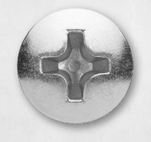Matthew 1
 Diana Butler Bass
Diana Butler Bass
“First, it provides Jesus’s legal pedigree. He is the son of David, in Israel’s royal line ... But Matthew has a second purpose. His genealogy tells readers that Jesus’s ancestry is the human story of faith and faithlessness, of good deeds and wicked ones, of saintly actions and dubious intentions ... In other words, Jesus may be a ‘king’ in the royal line of David, but his family is pretty much the same as everyone else’s. Matthew puts it out there — Jesus, son of Joseph, has a family genogram that could keep a therapist occupied for years.” --Diana Butler Bass
|
Matthew 1:2-17:
2Abraham begot Isaac, Isaac begot Jacob, and Jacob begot Judah and his brothers. 3Judah begot Perez and Zerah by Tamar, Perez begot Hezron, and Hezron begot Ram. 4Ram begot Amminadab, Amminadab begot Nahshon, and Nahshon begot Salmon. 5Salmon begot Boaz by Rahab, Boaz begot Obed by Ruth, Obed begot Jesse, 6and Jesse begot David the king. David the king begot Solomon by her who had been the wife of Uriah. 7Solomon begot Rehoboam, Rehoboam begot Abijah, and Abijah begot Asa. 8Asa begot Jehoshaphat, Jehoshaphat begot Joram, and Joram begot Uzziah. 9Uzziah begot Jotham, Jotham begot Ahaz, and Ahaz begot Hezekiah. 10Hezekiah begot Manasseh, Manasseh begot Amon, and Amon begot Josiah. 11Josiah begot Jeconiah and his brothers about the time they were carried away to Babylon. 12And after they were brought to Babylon, Jeconiah begot Shealtiel, and Shealtiel begot Zerubbabel. 13Zerubbabel begot Abiud, Abiud begot Eliakim, and Eliakim begot Azor. 14Azor begot Zadok, Zadok begot Achim, and Achim begot Eliud. 15Eliud begot Eleazar, Eleazar begot Matthan, and Matthan begot Jacob. 16And Jacob begot Joseph the husband of Mary, of whom was born Jesus who is called Christ. 17So all the generations from Abraham to David are fourteen generations, from David until the captivity in Babylon are fourteen generations, and from the captivity in Babylon until the Christ are fourteen generations. |
The events of Jesus’ birth were foretold in many prophecies in the Old Testament. A messiah was promised from the lineage of Abraham, Isaac, Judah, Jesse, and David. The prophecies came to pass as recorded in the New Testament, and the genealogy of Jesus can be found in Matthew 1:2-16 and Luke 3:23-38.
Matthew began Jesus’ lineage with Abraham and named each father in 41 generations ending in Matthew 1:16: “And Jacob begat Joseph the husband of Mary, of whom was born Jesus, who is called Christ.” Joseph descended from David through his son Solomon. Matthew’s record of the lineage is unique in the fact that four women are included: Tamar, Rahab, Ruth, and Bathsheba. Bathsheba was not listed by her name but rather that she had been Uriah’s wife. Mar 7, 2022: Zondervan Academic: Biblical Contradictions: Jesus' Genealogy - Mondays with Mounce Matthew and Luke have two different genealogies for Jesus, not even agreeing on the name of his grandfather. Is this a contradiction? I will look at three possible solutions and the problems of each. The whole issue of genealogies is compounded by the fact that they can skip generations, the same person can have different names (or different spellings), and levirate marriage can result in a physical father and a legal father. |
 RT France
RT France
Though the couple were not yet living together, it was a binding contract entered into before witnesses which could be terminated only by death (which would leave a woman a “widow”) or by divorce as if for a full marriage…; sexual infidelity during the engagement would be a basis for such divorce. About a year after the engagement… the woman (then normally about thirteen or fourteen) would leave her father’s house and go live with the husband in a public ceremony [a wedding] --R. T. France, The Gospel of Matthew, NICNT (Grand Rapids, MI: Eerdmans, 2007)
|
Matthew 1:20-21:
But after he had considered this, an angel of the Lord appeared to him in a dream and said, "Joseph son of David, do not be afraid to take Mary home as your wife, because what is conceived in her is from the Holy Spirit. She will give birth to a son, and you are to give him the name Jesus, because he will save his people from their sins. |
Being a righteous man (or "just" as some translations use in vs 19) he took the time to think on these things. He didn't react without thinking. Any consideration was not about his own reputation, but rather of Marys. He was secure in his position, but because he loved Mary, he wanted to protect hers. (Granted, I could be taking liberty with that, but I believe Joseph was an honorable man).
At the beginning of history, names must be invented; in the course of ages, they become hereditary. Had it been left to human wisdom to invent a name for the child of the Virgin, we can hardly guess what the result would have been. The right, however, belongs to the parent, and this case it was the right of God to name the child: Jesus! |
|
Matthew 1:23:
Behold, a virgin shall be with child, and shall bring forth a son, and they shall call his name Emmanuel, which being interpreted is, God with us. |
The mission of God's son is revealed in the names he is given. He is to be called "Jesus" literally "Yahweh is salvation." Matthew will repeat this name to his Gospel more than any other evangelist. The angel stresses its significance "he is....to save his people from their sins."
|
 Karl Barth
Karl Barth
“The nativity mystery “conceived from the Holy Spirit and born from the Virgin Mary”, means, that God became human, truly human out of his own grace. The miracle of the existence of Jesus , his “climbing down of God” is: Holy Spirit and Virgin Mary! Here is a human being, the Virgin Mary, and as he comes from God, Jesus comes also from this human being. Born of the Virgin Mary means a human origin for God. Jesus Christ is not only truly God, he is human like every one of us. He is human without limitation. He is not only similar to us, he is like us.”
― Karl Barth, Dogmatics in Outline
― Karl Barth, Dogmatics in Outline
|
Matthew 1:25:
"But he had no union with her until she gave birth to a son. And he gave him the name Jesus." |
Joseph and Mary did not have sexual relations till after the birth of Jesus, yet are referred to as husband and wife. "Nonconsumation" was not a reason to end the marriage. Sometimes there is a reason for it. "Jesus" is the Greek form of the Hebrew name "Jehsoshua," which means, "He will save." So Mary did not remain a virgin.
|








